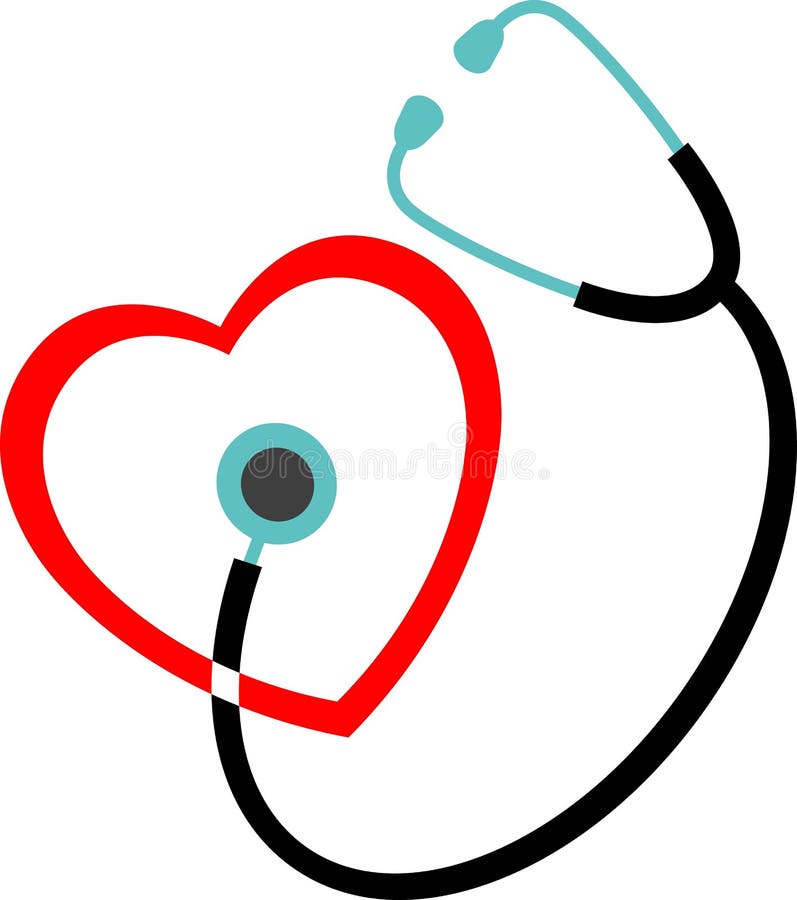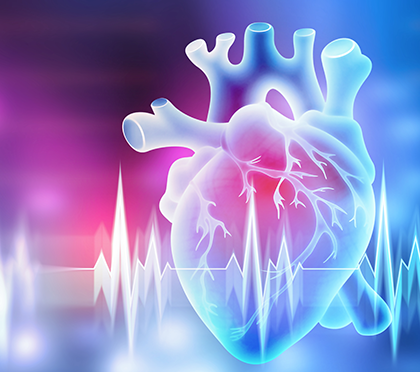How Dr Garcia helps track and improve key cardiovascular metrics
How Dr Garcia helps track and improve key cardiovascular metrics
Blog Article
Comprehending the Significance of Cardiology in Modern Healthcare Providers
Cardiology plays an essential function in modern-day medical care, specifically as heart illness proceeds to be the leading root cause of death worldwide. Advances in diagnostics and therapy have actually changed person treatment, allowing earlier treatments and improved end results. Moreover, the shift towards precautionary cardiology empowers individuals to handle their health and wellness proactively. As innovation remains to develop, the combination of cutting-edge remedies might even more redefine cardiology's effect on public health and wellness, motivating a closer evaluation of arising trends and their ramifications.
The Prevalence of Heart Condition and Its Influence on Public Wellness
Although heart condition stays the leading reason of fatality internationally, its influence expands far past private clients to influence public wellness systems and economic climates. The high prevalence of cardiovascular disease positions a significant stress on healthcare sources, requiring enhanced financing for treatment, avoidance, and rehab programs. Public wellness efforts should resolve risk factors such as excessive weight, smoking cigarettes, and sedentary lifestyles, which add substantially to the rising incidence of heart conditions.Moreover, the economic problem related to heart condition is tremendous, including not only straight medical prices yet likewise indirect costs associated with shed productivity and early mortality. Areas deal with obstacles in handling these costs, often causing variations in healthcare accessibility and results. As the population ages and lifestyle-related threats remain to intensify, the urgency for reliable cardiology treatments ends up being vital. Attending to heart condition is not just an issue of specific health however likewise an essential public wellness top priority.
Breakthroughs in Heart Diagnostics and Imaging Techniques
Current improvements in cardiac diagnostics and imaging methods have transformed the field of cardiology, enhancing the ability to discover and keep an eye on cardiovascular disease. Techniques such as cardiac MRI, CT angiography, and echocardiography have become progressively innovative, giving thorough photos of cardiac frameworks and features. These methods enable for the very early recognition of problems like coronary artery illness, cardiac arrest, and valvular disorders.Moreover, improvements in non-invasive diagnostics, such as wearable modern technology and remote surveillance tools, have actually encouraged individuals and health care providers. These devices assist in real-time tracking of heart rhythms and various other crucial indicators, bring about prompt interventions. Furthermore, expert system is being integrated into imaging evaluation, enhancing accuracy and efficiency in medical diagnosis.
Advancements in Therapy Alternatives for Heart Issues
Current improvements in cardiology have resulted in considerable developments in treatment options for heart disease. These include innovative surgical techniques that enhance step-by-step end results and arising medicines that supply brand-new opportunities for therapy. As the area develops, these developments play an important role in improving patient care and results.
Advanced Surgical Techniques
Innovations in medical strategies have changed the landscape of cardiology, using brand-new wish for individuals with heart disease. Minimally invasive procedures, such as catheter-based treatments, have greatly minimized recuperation times and hospital stays. Methods like robotic-assisted surgical procedure boost accuracy, permitting surgeons to navigate complex anatomical structures with better precision. Developments in imaging technology help with real-time visualization throughout treatments, enhancing results. Transcatheter aortic shutoff replacement (TAVR) exemplifies a development in dealing with aortic constriction, allowing valve replacement without open-heart surgical treatment. Furthermore, hybrid methods that integrate catheter-based and surgical techniques supply customized options for numerous cardiac problems. These advanced surgical strategies not only boost patient security yet additionally increase therapy alternatives, emphasizing the vital role of development in modern-day cardiology practices.
Emerging Therapies and medications
As the landscape of cardiology remains to advance, emerging treatments and drugs play a critical role in improving treatment options for heart conditions. Innovations such as novel anticoagulants and progressed lipid-lowering representatives have changed the monitoring of cardio conditions, considerably lowering client morbidity and death. In addition, the growth of genetics treatments and regenerative medicine uses encouraging methods for dealing with problems formerly regarded incurable. Professional tests are constantly revealing the efficiency of these treatments, pressing the borders of traditional treatments. The integration of electronic wellness innovations promotes personalized medicine, enabling for tailored treatment plans based on hereditary and way of living factors. Collectively, these innovations highlight the vibrant nature of cardiology, improving individual end results and redefining criteria of care in modern health care.
The Duty of Preventive Cardiology in Person Care
Precautionary cardiology plays a vital duty in patient treatment by concentrating on the identification of danger variables that add to cardiovascular disease. Through way of living adjustment methods and very early discovery methods, medical care carriers can efficiently lower the incidence of cardio occasions - Cardiology. This proactive technique not only enhances client results yet also promotes long-term health and wellness
Danger Aspect Recognition
While cardiovascular diseases stay a leading reason of morbidity and death worldwide, reliable risk element recognition offers as a foundation of preventative cardiology. Identifying risk aspects such as high blood pressure, diabetes mellitus, family members, and hyperlipidemia background is crucial for very early treatment. Health care specialists utilize numerous screening methods to examine these variables, enabling tailored preventive procedures. In addition, recognizing a person's way of life selections, such as smoking cigarettes and physical inactivity, even more educates threat assessments. This extensive assessment enables clinicians to develop customized care plans focused on mitigating dangers. By prioritizing threat aspect identification, healthcare systems can improve patient outcomes and decrease the total worry of heart diseases, inevitably adding to improved public health strategies and source allotment.
Lifestyle Modification Methods
A wide variety of research studies highlights the critical role of lifestyle alteration strategies in decreasing heart disease danger. These techniques encompass dietary modifications, enhanced physical task, smoking cigarettes cessation, and weight monitoring. By adopting a heart-healthy diet regimen rich in fruits, veggies, whole grains, and lean healthy proteins, people can reduce cholesterol degrees and high blood pressure. Regular physical task enhances the heart and enhances total cardio health and wellness. Additionally, giving up smoking cigarettes substantially reduces the risk of heart illness and enhances recovery prices for those with status quo. Weight management better adds to cardiovascular wellness by reducing other threat factors such as diabetes mellitus and hypertension. Carrying out these lifestyle transforms not just promotes specific well-being however likewise offers as a foundation of preventive cardiology in patient care.
Early Discovery Strategies
Lifestyle modifications greatly add to lowering heart disease threats, however they are most effective when coupled with very early detection techniques. Preventative cardiology highlights the importance of recognizing possible heart problems before they rise into major problems. Strategies such as high blood pressure tracking, cholesterol screening, and progressed imaging innovations like echocardiograms play vital functions in reviewing cardio health. Biomarkers and hereditary testing likewise enhance the accuracy of early detection, enabling tailored preventive methods. Regular heart danger examinations empower doctor to interfere proactively, possibly preventing cardiac arrest and strokes (Cardiology). By incorporating these very early detection techniques into routine treatment, individuals can gain from timely way of life treatments and targeted treatments, eventually improving and boosting end results quality of life
Integrating Innovation Into Cardiology Practices
As innovations in technology remain to improve numerous fields, the combination of ingenious devices and systems right into cardiology practices has ended up being crucial for enhancing client care and results. Telemedicine systems allow cardiologists to monitor individuals from another location, boosting access to care while reducing the concern on health care centers. Wearable tools, such as smartwatches, make it possible for continuous heart rate surveillance, alerting both individuals and physicians to prospective issues in real-time. In addition, expert system (AI) is being made use of to evaluate huge quantities of cardiac information, aiding in early diagnosis and customized therapy strategies. Advanced imaging techniques, including 3D echocardiography, improve visualization of heart frameworks, leading to a lot more exact treatments. Electronic health records (EHRs) enhance person details management, guaranteeing that cardiologists have instant accessibility to critical data. Together, these technical advancements are transforming cardiology, promoting positive administration and improved health and wellness results for patients with cardiovascular conditions.
The Importance of Patient Education and Interaction
Client education and engagement play an essential role in the administration of cardiovascular health. By outfitting patients with knowledge concerning their problems, treatment alternatives, and lifestyle changes, healthcare companies empower individuals to take an active duty in their treatment. This proactive strategy can cause enhanced adherence to prescribed medicines, dietary adjustments, and exercise programs, ultimately minimizing the danger of complications.Engagement additionally fosters a strong patient-provider connection, encouraging open interaction and trust fund. When clients feel notified and entailed, they are more probable to voice issues and ask concerns, which can cause much better professional end results. In addition, educational resources, such as workshops or digital platforms, can enhance understanding and promote self-management techniques. Generally, focusing on person education and learning and engagement is crucial for enhancing cardiovascular health and wellness, enhancing high quality of life, and minimizing medical care prices connected with cardiovascular diseases.
Future Trends in Cardiology and Their Prospective Influence

Regularly Asked Questions
What Lifestyle Adjustments Can Reduce Cardiovascular Disease Risk?
The Go Here existing inquiry addresses lifestyle adjustments that can greatly lower cardiovascular disease threat. Dr Garcia. Adopting a balanced diet regimen, taking part in regular physical task, preserving a healthy weight, taking care of tension, and avoiding tobacco can especially enhance cardiovascular health and wellness
How Can I Identify Early Indicators of Heart Problems?
Identifying early indicators of heart issues entails tracking signs and symptoms such as breast discomfort, shortness of breath, exhaustion, and irregular heart beat. Timely understanding of these indications can prompt essential medical analysis and intervention for far better outcomes.
What Are the Differences In Between Cardiologists and Cardiac Surgeons?
The distinctions between cardiologists and cardiac surgeons lie in their duties; cardiologists mainly detect and manage heart disease via non-invasive techniques, while heart surgeons execute operations to fix architectural heart concerns. Each plays a crucial, distinct role.

How Commonly Should I Obtain My Heart Health And Wellness Checked?
The regularity of heart health and wellness checks varies based on individual threat elements. Typically, grownups must undergo assessments each to 2 years, while those with present problems might need even more regular analyses as recommended by healthcare professionals.
What Duty Does Genes Play in Cardiovascular Disease Danger?
Genetics greatly influences heart problem danger, with familial patterns suggesting acquired conditions. Specific genetics can incline people to high blood pressure, cholesterol issues, and other cardiovascular problems, highlighting the importance of hereditary screening in evaluating heart health. Heart condition continues to be the leading cause of death worldwide, its impact expands far past private patients to influence public health and wellness systems and economies. Public wellness campaigns have to resolve threat factors such as excessive weight, cigarette smoking, and less active way of lives, which contribute considerably to the climbing incidence of heart conditions.Moreover, the financial concern linked with heart illness is tremendous, including not only direct clinical expenses yet additionally indirect expenditures connected to shed efficiency and premature death. Preventative cardiology plays a crucial role in patient treatment by concentrating on the identification of risk elements that add to heart disease. Artificial knowledge pop over to this site (AI) and equipment discovering are enhancing diagnostics and person tracking, making it possible for early detection of heart illness. The differences in between cardiologists and cardiac cosmetic surgeons exist in their functions; cardiologists mostly detect and take care of heart conditions through non-invasive approaches, while cardiac specialists do surgical treatments to correct architectural heart issues.
Report this page